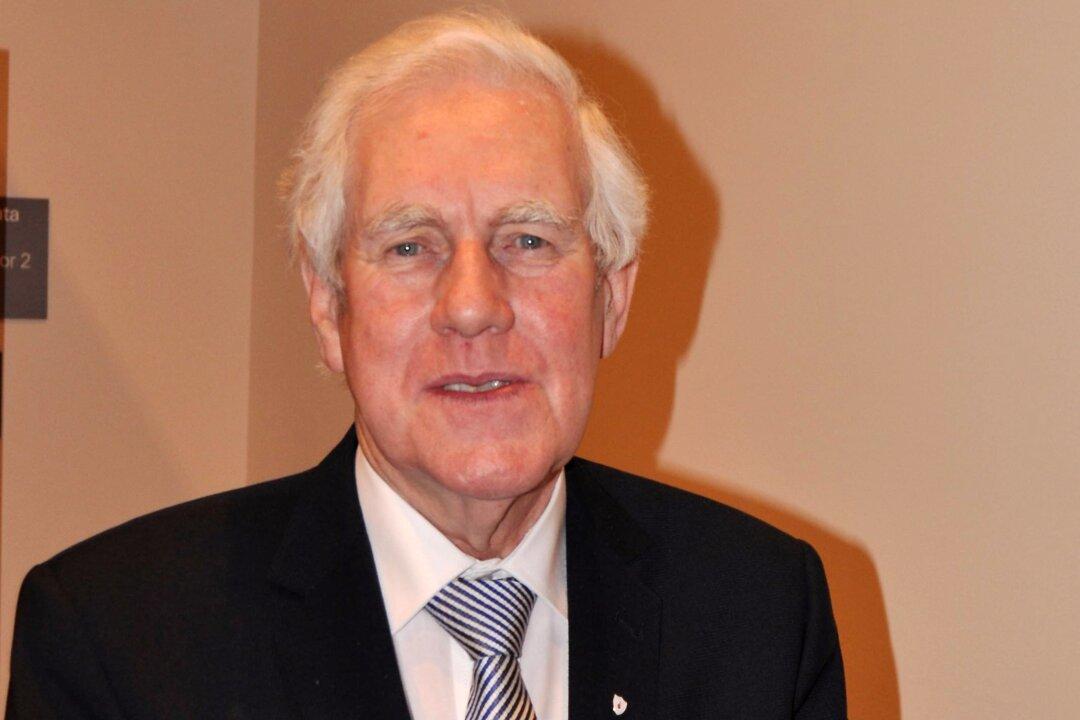In recent years, many SMEs have had difficulty in sourcing funding for themselves; the banking sector hasn’t been as quick to lend to businesses. So according to Shane Connors of Savvy.ie, SMEs need to think outside the box when it comes to securing finance.
Savvy.ie was founded in May 2013, and it’s a company that assists those who want to sell, or find investors for, their business.
How it works is that people can go to the Savvy.ie website and add their business to promote the opportunity. There are also services where Savvy.ie can assist the company at various stages and to varying extents throughout the process.
Shane Connors’ background is in bookkeeping—he’s an accountant by profession. “I have been involved in mergers, acquisitions and corporate finance for over 10 years,” said Connors, as he explained the reasons for his venture with business partner William Brennan, a solicitor who has been involved in a number of high-level and high-profile commercial transactions.
“I had spent some time overseas myself, and when I came home I was looking for investment opportunities. It [the website] was a well-established model in the UK and elsewhere, but there was no one central focal point for SMEs to come to congregate, and to share the information and opportunities. There was no one definitive destination site in Ireland until now. That has been my ambition for the past 12 months or so,” explained Connors.
According to Savvy.ie, if someone is looking to buy a business, they are often pretty open-minded about what they are looking for. So they would often go to their accountant and tell them they were looking for X or Y type of business, or they were looking for something more general, like they wanted to be a B2B service provider, and they had a certain amount of money to invest. However, this would have generally required a lot of leg work on their part. However, now they can go on the Savvy.ie website and view opportunities there and make contact with the other parties immediately. “It really speeds up the search process for them. Furthermore, any opportunities that we receive that we think may be of interest to them, we can promote them to them,” said Connors.
Limited Credit in the SME market
“My own view is that in the SME sector, the banking system as we knew it is broken, and it won’t be fixed for quite some time. Businesses are going to have to get more creative and a bit more inventive in terms of how they are financed going forward,” said Connors, who believes that Savvy.ie is certainly one of the ways that this can be achieved, whether it be via investment or mergers.
“Perhaps they can get a like-minded person on board, and maybe not for huge amounts of money. Maybe it can be structured so that they are not giving away a huge amount of equity. There are lots of options for how finance can be put in place. Up to now, SMEs wouldn’t have looked at these options as sources of finance—the first port of call for them in the past would have been the bank.”
Inward Investment into Ireland from Abroad
Savvy.ie is also a means for investors outside of Ireland to view what’s on offer.
“I’m in the middle of a promotion in the UK where I am advertising some Irish businesses to potential UK companies,” said Connors, as he gave an example of how this type of funding can work.
Connors says that an Irish company in a sector here that may have a small pool of players may not want the companies in that sector to know that they are thinking of expanding, selling, or looking for investment. So a company like this might look to the UK, mainland Europe, or even the US to make new contacts.
“There are many Irish business people abroad who may be looking to come back to Ireland,” says Connors. “They have had their number of years away and now, for lifestyle reasons, they want to come home. Or you might have a progressive UK company looking to expand, and viewing Ireland—relatively speaking—as a low-risk option. Rather than them trying to set something up here and jumping through all the hoops involved with that, a better option for them is to buy an existing player. We are definitely seeing those opportunities out there.”
Putting your best foot Forward
According to Connors, if you are thinking of selling a business, then you have to make sure your house is in order to get the best price possible. He listed a few pointers on how best to do that, and noted that you can log on to the Savvy.ie website and request a call back, or you can contact him directly at [email protected] for further advice.
“If you are selling your business, you want to put your best foot forward on it; you want to be selling it on your terms—not in a distressed situation, or with your being worn out and wanting rid of it. You want to be selling it at the right time,” he said, stating that this process can take many months or even several years in certain cases.
“It needs to be carefully managed: there are many factors why someone might buy a business, but ultimately you need to maximise your pay day when you are leaving. You'll want to find a strategic buyer—someone who is buying it for very good, sound, and strategic reasons. Maybe it gives them access to some new customer base, or allows them to sell their products into a new jurisdiction. Whatever the reason, to find those guys, you need to have your ducks in a row beforehand.”
Connors’ next step (and you can do this yourself on Savvy.ie) is to get the businesses who come to him to complete what he calls the “saleability scorecard”. This is an online questionnaire that takes about 15 minutes to complete, and that grades the business across eight different parameters. It rates them versus their international counterparts, and it tells them how ready they are to go to the market. “What it does then is it gives the entrepreneur and their advisers a roadmap across those eight parameters as to the areas they are strong or weak in. Knowing the ones they need to focus on gives them a very clear plan so they can go to the market at the right time.”
According to Connors, for many SMEs the capital of the business is embodied in a certain individual. It’s their passion or obsession that has brought the business to where it is, but depending on their skill set, it can also get to a stage where it is holding the company back.
“They are happy with the business being a certain size; they have run it that way for years and they don’t particularly want to let go of the control,” he says. “Chances are they aren’t great at delegating or documenting processes—all that type of stuff. Part of the challenge with these guys is to get them to start doing that [delegating an documenting processes] and to step back from it [the business]; initially very slowly, and to trust others a bit more, because ultimately if they go to sell and the value of the business is all in that person themselves, the buyer is going to recognise that, and the price will reflect that. So you have got to have a business that will run when that person walks away, that the business will continue…that is the challenge for a lot of these guys.”
Get your House in Order
“The starting point for me is the financial statements, are there any ‘funnies’ in there? Is there anything there that, if someone were to look at it, it would raise questions? Many people treat their business as a lifestyle business—they use it to fund their lifestyle. By looking at the accounts, usually that can be quite obvious—so you have to leave a period of time where that’s all behind you, and where you have a string of black numbers, or at least it’s on an upward curve. You also have to make sure your housekeeping is in order in terms of employment contracts, leases on premises—that’s really the starting point. After that, the systems and processes are what count: if the owner was to fall ill for three months, what would happen? Who would step up to the plate? Would anybody be able to? If no one is able to, then you need to start looking at that. You need to start planning for it.”



